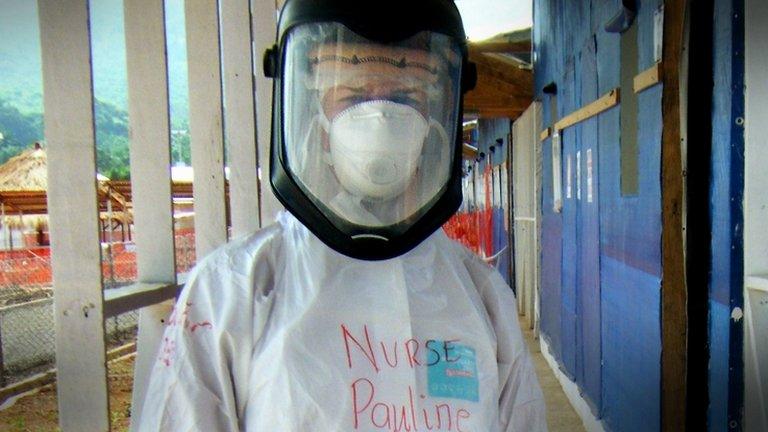Ebola nurse Pauline Cafferkey discharged from hospital
- Published
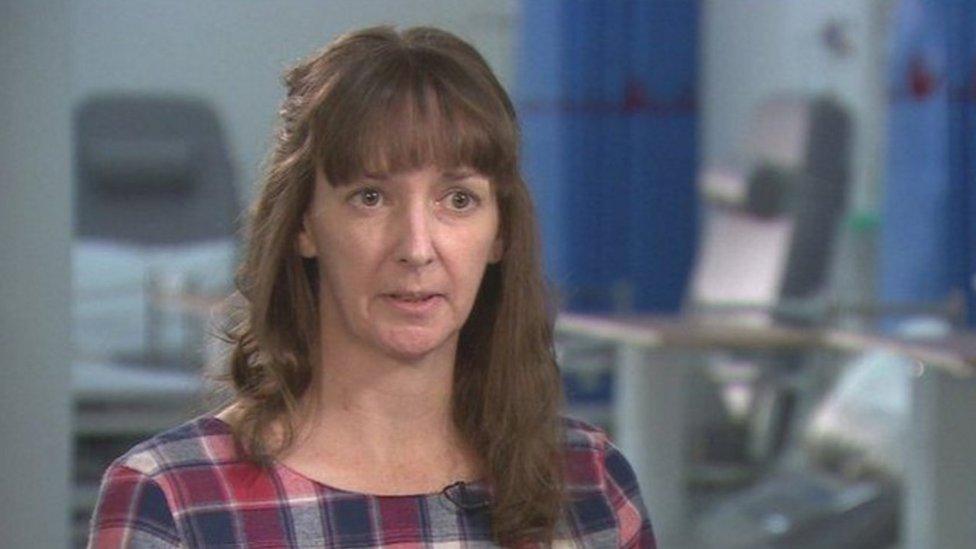
Pauline Cafferkey contracted Ebola in Sierra Leone in 2014
Scots nurse Pauline Cafferkey has been discharged from a London hospital after being treated there for a third time since contracting Ebola.
The 40-year-old from South Lanarkshire was flown to the Royal Free Hospital on Tuesday after being admitted to Glasgow's Queen Elizabeth Hospital.
The Royal Free said she had been discharged and was "not infectious".
Ms Cafferkey was treated there twice in 2015 after contracting Ebola in Sierra Leone the previous year.
A spokesman for the Royal Free Hospital said: "Pauline Cafferkey has today been discharged from the care of the Royal Free Hospital following her admission due to a complication related to her previous infection by the Ebola virus.
"We can confirm that Pauline is not infectious. The Ebola virus can only be transmitted by direct contact with the blood or bodily fluids of an infected person while they are symptomatic."
Health Secretary Jeremy Hunt later tweeted: "It's fantastic news that Pauline Cafferkey has been discharged from hospital. Outstanding care again from @RoyalFreeNHS #NHSheroes."
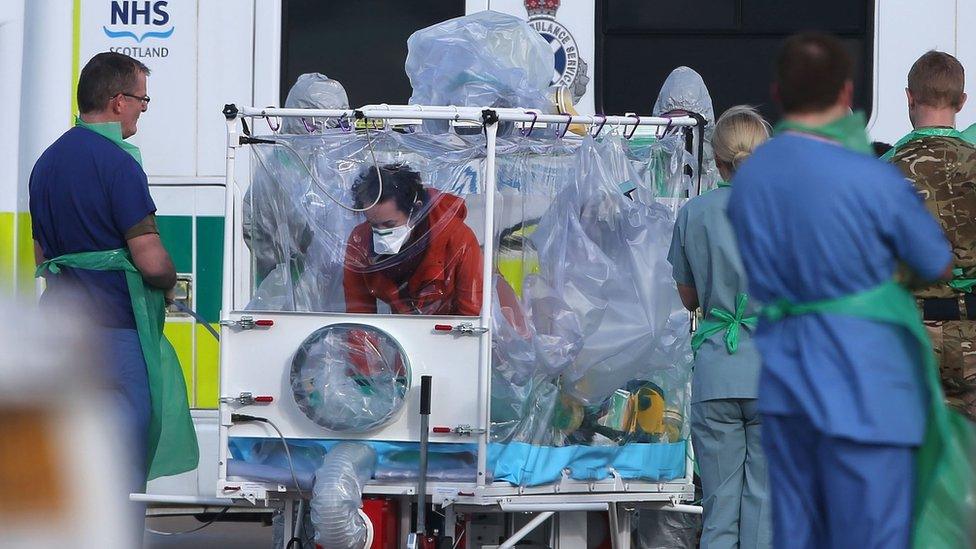
Pauline Cafferkey was taken to the Royal Free Hospital in London last week
The nurse, from Halfway, Cambuslang, contracted the virus while working as part of a British team at the Kerry Town Ebola treatment centre.
She spent almost a month in isolation at the Royal Free at the beginning of 2015 after the virus was detected when she arrived back in the UK.
Ms Cafferkey was later discharged after apparently making a full recovery, and in March 2015 returned to work as a public health nurse at Blantyre Health Centre in South Lanarkshire.
In October last year it was discovered that Ebola was still present in her body, with health officials later confirming she had been diagnosed with meningitis caused by the virus.

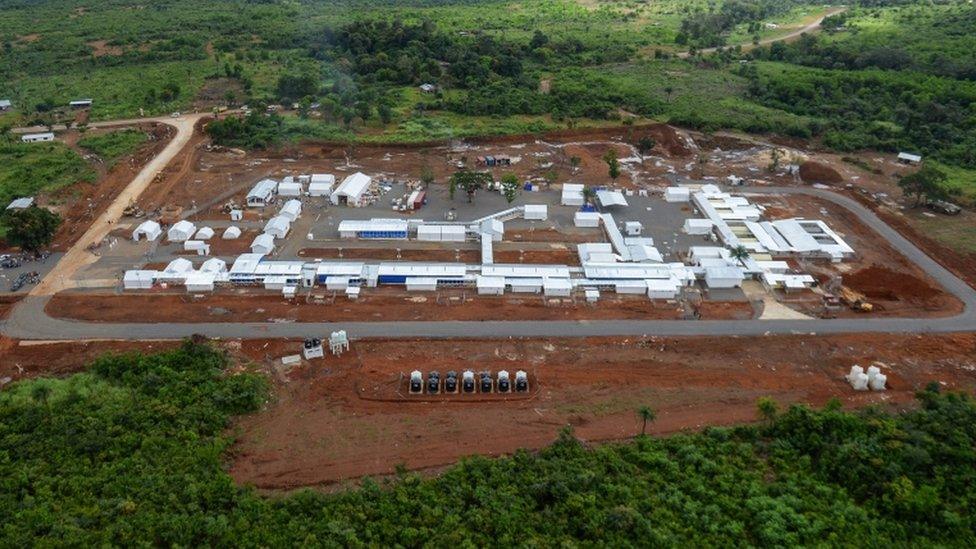
Ms Cafferkey worked at Kerry Town Ebola treatment centre in 2014
What is Ebola?
Ebola is a viral illness of which the initial symptoms can include a sudden fever, intense weakness, muscle pain and a sore throat, according to the World Health Organization (WHO). And that is just the beginning: subsequent stages are vomiting, diarrhoea and - in some cases - both internal and external bleeding.
The disease infects humans through close contact with infected animals, including chimpanzees, fruit bats and forest antelope.
It then spreads between humans by direct contact with infected blood, bodily fluids or organs, or indirectly through contact with contaminated environments. Even funerals of Ebola victims can be a risk, if mourners have direct contact with the body of the deceased.
Where does it strike?
Ebola outbreaks occur primarily in remote villages in Central and West Africa, near tropical rainforests, says the WHO.
The Ebola outbreak in West Africa was first reported in March 2014, and rapidly became the deadliest occurrence of the disease since its discovery in 1976.
Almost two years on from the first confirmed case recorded on 23 March 2014, more than 11,000 people have been reported as having died from the disease in six countries; Liberia, Guinea, Sierra Leone, Nigeria, the US and Mali.
The total number of reported cases is almost 29,000.
On 13 January, 2016, the World Health Organisation declared the last of the countries still affected, Liberia, to be Ebola-free.

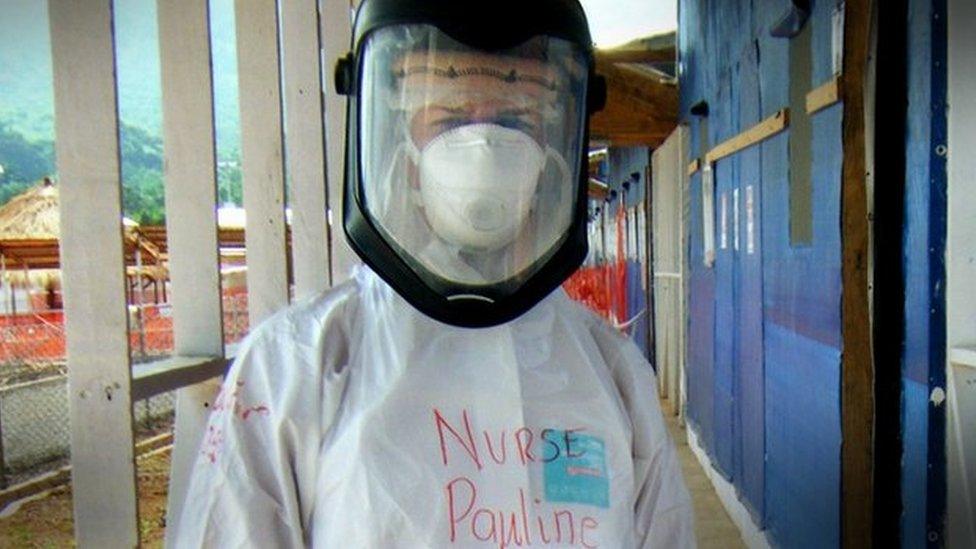
Ms Cafferkey pictured in Sierra Leone in 2014

Timeline: Pauline Cafferkey's Ebola illness
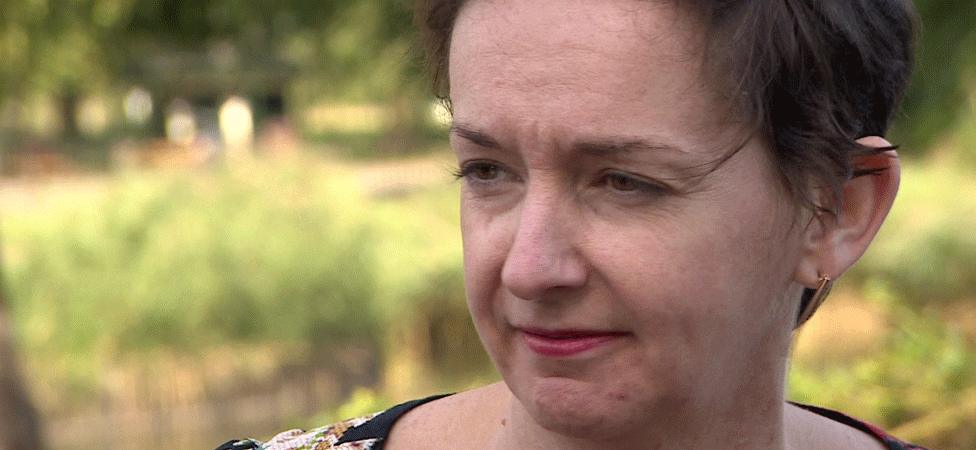
30 December, 2014 - Ebola nurse Pauline Cafferkey transferred to London unit
31 December, 2014 - Experimental drug for Ebola patient Pauline Cafferkey
4 January, 2015 - UK Ebola nurse Pauline Cafferkey 'in critical condition'
12 January, 2015 - Ebola nurse no longer critically ill
24 January, 2015 - Ebola nurse: Pauline Cafferkey 'happy to be alive'
10 October, 2015 - Ebola nurse Pauline Cafferkey remains 'serious'
14 October, 2015 - Ebola nurse Pauline Cafferkey now 'critically ill'
21 October, 2015 - Ebola caused meningitis in nurse Pauline Cafferkey
12 November, 2015 - Ebola nurse Pauline Cafferkey 'has made full recovery'
23 February, 2016 - Ebola nurse Pauline Cafferkey flown to London hospital
28 February, 2016 - Ebola nurse Pauline Cafferkey discharged from hospital
- Published24 February 2016
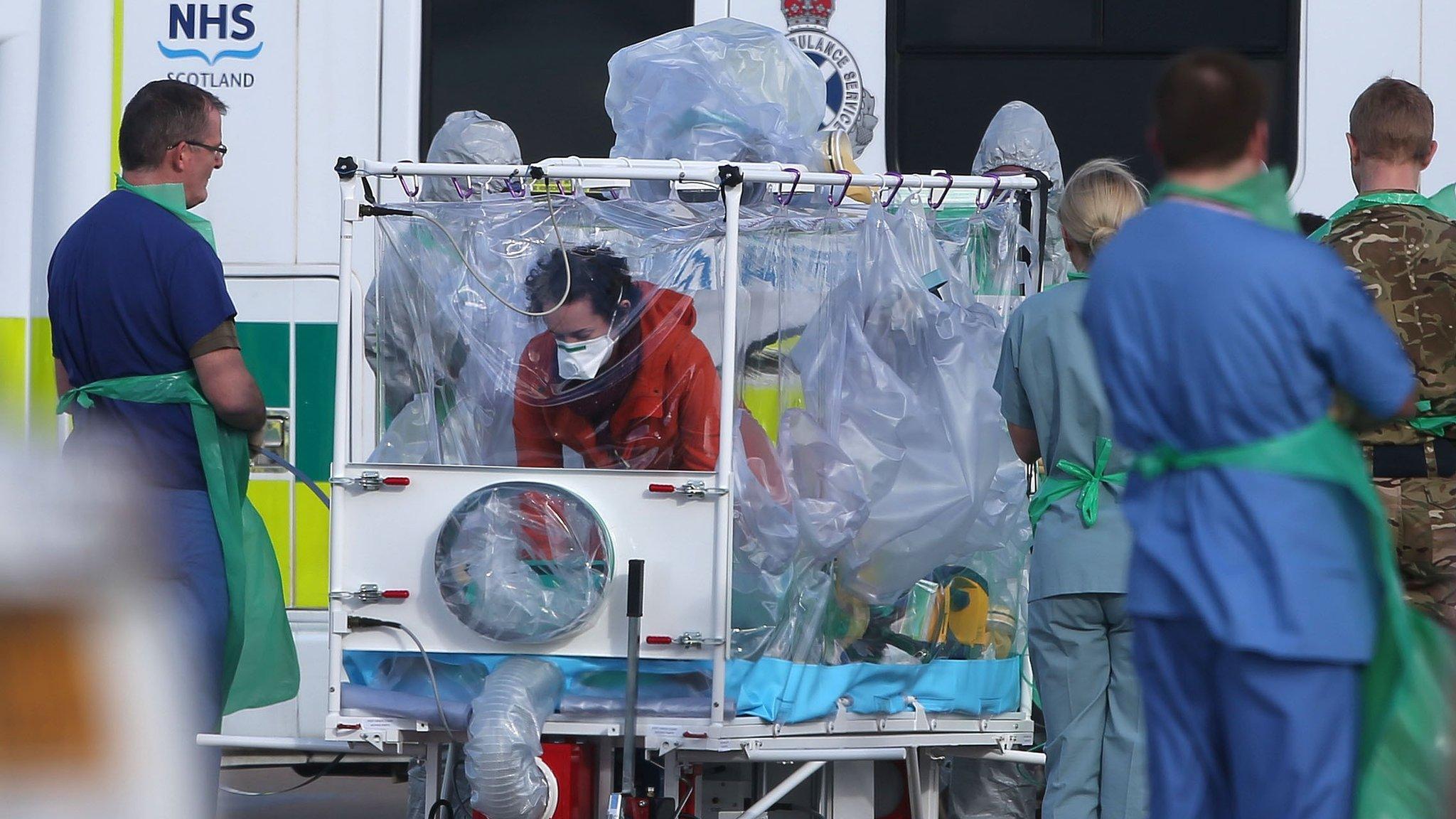
- Published23 February 2016
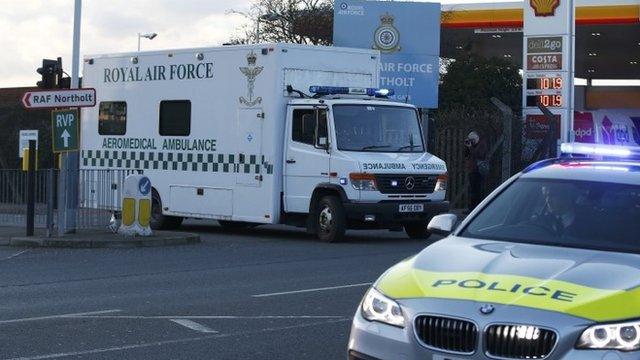
- Published18 August 2016
